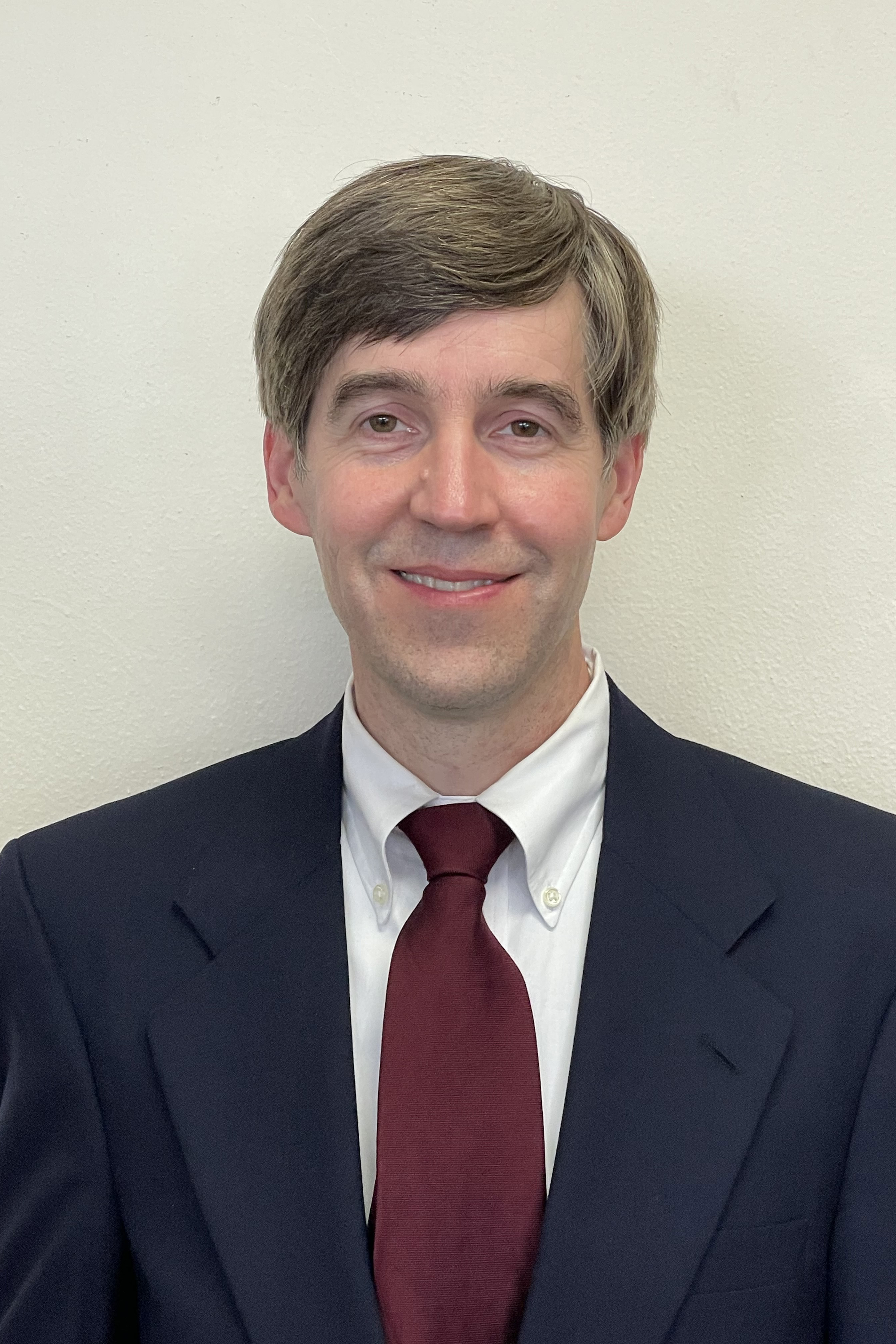Jeffrey H. Thomas, Ph.D.
Associate Professor
Graduate Advisor

Ph.D. Biology Massachusetts Institute of Technology
Curriculum Vitae
Department of Cell Biology and Biochemistry
Texas Tech University Health Sciences Center
3601 4th Street, Lubbock, TX 79430-6540
Office Phone: (806) 743-4219
jeffrey.thomas@ttuhsc.edu
Research Interests
Morphogenesis, embryonic development, tissue folding, cell shape change, gastrulation, actomyosin dynamics, cytoskeleton, signal transduction.
Current Projects
Morphogenesis of the cephalic furrow
In this project, we study the cell shape changes and tissue movements involved in
cephalic furrow formation during Drosophila gastrulation. During cephalic furrow formation, the cellular blastoderm invaginates into the embryo
as a simple fold, retaining its epithelial character. We are investigating the morphogenetic processes and forces involved in remodeling
the embryonic blastoderm during cephalic furrow formation. We are also taking a genetic approach to identify the genes that control this process.
We have identified several genes and are currently analyzing their cellular functions.
Regulation of microfilament dynamics during development
In this project, we study the role of actomyosin dynamics during cellularization,
the process of forming cells in the multinucleate Drosophila embryo. During this stage of development, a lattice-like network of interconnected microfilament
rings encompasses the entire embryo. We have found that src64 is involved in regulating the contraction of these microfilament rings. We are currently taking a genetic approach to investigate how nonmuscle myosin II
is regulated during cellularization.
Src64 signaling during Drosophila development
In this project, we study signal transduction by Src64, a non-receptor tyrosine kinase
homologous to vertebrate src. We are investigating the functions of Src64 signaling in the development of the Drosophila
embryo. We are also investigating fundamental aspects of tyrosine kinase signaling by analyzing
mutations that alter Src64 signaling activity and by identifying other proteins that
participate in Src64-mediated signaling pathways.
Biomechanics of gastrulation
In this project, we study the mechanics of cell shape changes and tissue movements
in Drosophila gastrulation. In conjunction with a physics group, we are analyzing
gastrulation and computationally modeling cell shape changes to determine how mechanical
forces function during morphogenesis.
Selected Publications
- Redowan A. Niloy, Michael C. Holcomb, Jeffrey H. Thomas and Jerzy Blawzdziewicz. (2023). The mechanics of cephalic furrow formation in the Drosophila embryo. bioRxiv/2023/524786. Biophys. J. (accepted)
- Guo-Jie J. Gao, Michael Holcomb, Jeffrey H. Thomas and Jerzy Blawzdziewicz. (2022). A Markov chain Monte Carlo model of mechanical-feedback-driven progressive apical constrictions captures the fluctuating collective cell dynamics in the Drosophila embryo. Front. Phys. 10:971112. doi: 10.3389/fphy.2002.971112.
- Subash Kairamkonda, Ashish Chougule, Kanika Sharma, Ming Yi, Giovanna Grandinetti, Philip Liaw, Stephen Yanofsky, Solomon Ungashe, William Garland, Mathew Holderfield and Jeffrey H. Thomas. (2020). Drosophila Models of Oncogenic KRAS. (submitted)
- Michael C. Holcomb, Guo-Jie Jason Gao, Mahsa Servati, Dylan Schneider, Presley K. McNeely, Jeffrey H. Thomas, Jerzy Blawzdziewicz. (2021). Mechanical feedback and robustness of apical constrictions in Drosophila embryo ventral furrow formation. PLoS Comput. Biol. 17(7): e1009173.
- Tammy Y. Carter, Swetha Gadwala, Ashish B. Chougule, Nam P. N. Bui, Alex C. Sanders, Raghothama Chaerkady, Nathaly Cormier, Robert N. Cole and Jeffrey H. Thomas. (2019). Actomyosin Ring Contraction during Cellularization is Regulated in Part by Src64 Control of Actin 5C Protein Levels. genesis 57: e23297.
- Guo-Jie Gao, Michael C. Holcomb, Jeffrey H. Thomas and Jerzy Blawzdziewicz. (2016). Embryo as an active granular fluid: stress-coordinated cellular constriction chains. J. Phys.: Condens. Matter 28: 414021. PubMed
- Ashish B. Chougule, Mary C. Hastert and Jeffrey H. Thomas. (2016). Drak is required for actomyosin organization during Drosophila cellularization. G3: Genes, Genomes, Genetics 6: 819-828. PubMed
- Allison K. Spencer, Bilal Siddiqui and Jeffrey H. Thomas. (2015). Cell shape change and invagination of the cephalic furrow involves reorganization of F-actin. Developmental Biology 402: 192-207. PubMed
- Taylor C. Strong, Gurvinder Kaur and Jeffrey H. Thomas. (2011). Mutations in the catalytic loop HRD motif alter the activity and function of Drosophila Src64. PLoS ONE 6: e28100. PubMed
- Taylor C. Strong and Jeffrey H. Thomas. (2011). Maternal and zygotic requirements for src64 during Drosophila cellularization. Genesis 49: 912-918. PubMed
- Jeffrey H. Thomas and Eric Wieschaus. (2004). src64 and tec29 are required for microfilament contraction during Drosophila cellularization. Development 131: 863-871. PubMed
- Jeffrey H. Thomas, Craig J. Ceol, Hillel T. Schwartz and H. Robert Horvitz. (2003). New genes that interact with lin-35 Rb to negatively regulate the let-60 ras pathway in Caenorhabditis elegans. Genetics 164: 135-151. PubMed
- Jeffrey H. Thomas and H. Robert Horvitz. (1999). The C. elegans gene lin-36 acts cell autonomously in the lin-35 Rb pathway. Development 126: 3449-3459. PubMed
